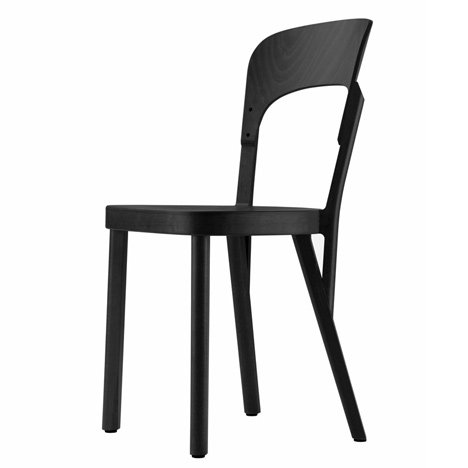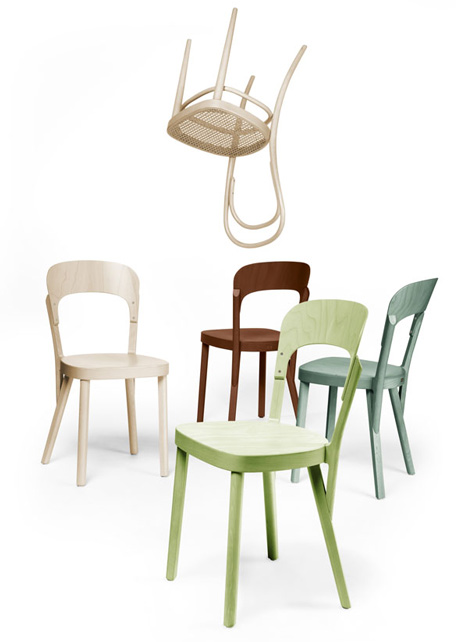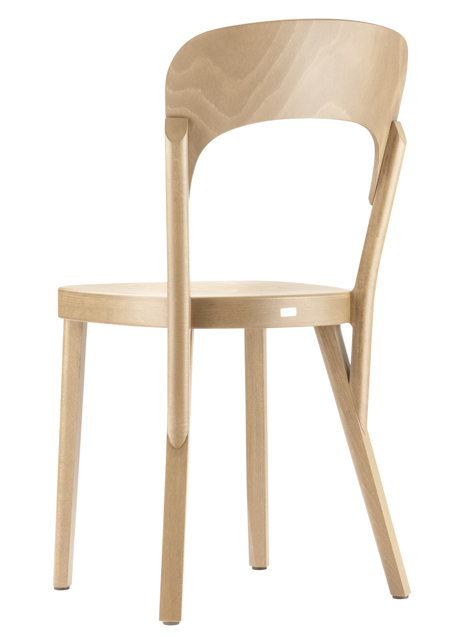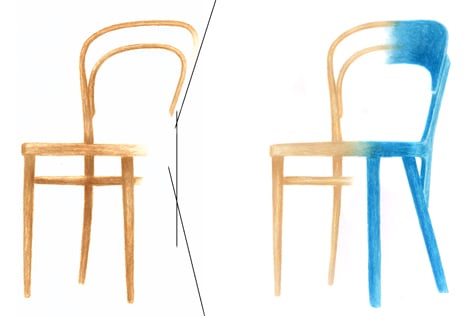107 Chair by Robert Stadler for Thonet
Product news: Austrian designer Robert Stadler's update on the classic bentwood bistro chair by Thonet, synonymous with cafe culture since it appeared in the nineteenth century, has gone into production.

Last November we reported on the initial launch of Robert Stadler's 107 chair, which was created specially for the Corso restaurant interiors that Stadler designed in Paris. Now available as part of German furniture maker Thonet's own collection, the 107 Chair incorporates a separate flat backrest to simplify the production process.

By replacing the curves of Thonet's famous 214 Chair with straight lines, Stadler enabled it to be manufactured in a cost-efficient way. The frame is made of solid wood, while the seat and backrest are made of plywood with a natural or stained finish.

We recently featured a concept bicycle made for Thonet with a frame of steam-bent wood, inspired by the classic 214 chair.
See all our stories about Robert Stadler »
See all our stories about Thonet »
See all our stories about chairs »

Above: image is by Robert Stadler Studio
Photographs are by Constantin Meyer except where stated.
Here's some more information from the designer:
The 107 Chair by Robert Stadler: Inspired by Coffee House Culture Yet Uncompromisingly Modern
Variations on an archetypal design: with its slim, curved backrest and its lightweight and elegant look, the 107 chair is reminiscent of Thonet’s famous 214 coffee house chair. An effect intended by Austrian-born and Paris-based designer Robert Stadler, who sees his 107 chair as a contemporary re-interpretation of the most famous of classic chair designs. The new 107 chair connects to Thonet’s longstanding tradition by being an ideal piece of furniture for the café and restaurant trade, which is equally well suited for use in private living and dining interiors.
Initially, the 107 design was commissioned for the Corso restaurants in Paris where the chair has been used since autumn 2011. From October 2012, the 107 chair will also be available as part of the Thonet collection. The 214 coffee house chair (historically No 14) saw worldwide success in the 19th century, not least due to its sensible pricing. Today, this classic piece is rather expensive to produce since the bentwood material requires a high percentage of manual work during production.
With the 107, Robert Stadler wanted to design a chair for the cafés of the world’s cities that would explicitly reference its predecessor yet would be significantly cheaper to produce thanks to modern production technologies. “You only have to think of Buckminster Fuller who was able to achieve maximum stability with minimal use of materials when designing his geodesic domes. I took this idea as an inspiration and I also simplified the design by replacing curves with straight lines without compromising the chair’s comfort. I wanted to design a variation on the famous 214 that would take the original idea as a guideline: creating a Thonet chair that can be produced in a cost-efficient way,” says Robert Stadler.
A characteristic feature of the new chair is the fragment design of the backrest, which is both a constructional element and a design feature. The frame of the 107 chair, which is only available without armrests, is made of solid wood. The seat and backrest are made of plywood with a natural or stained finish. The seat is also available with textile or leather upholstery.